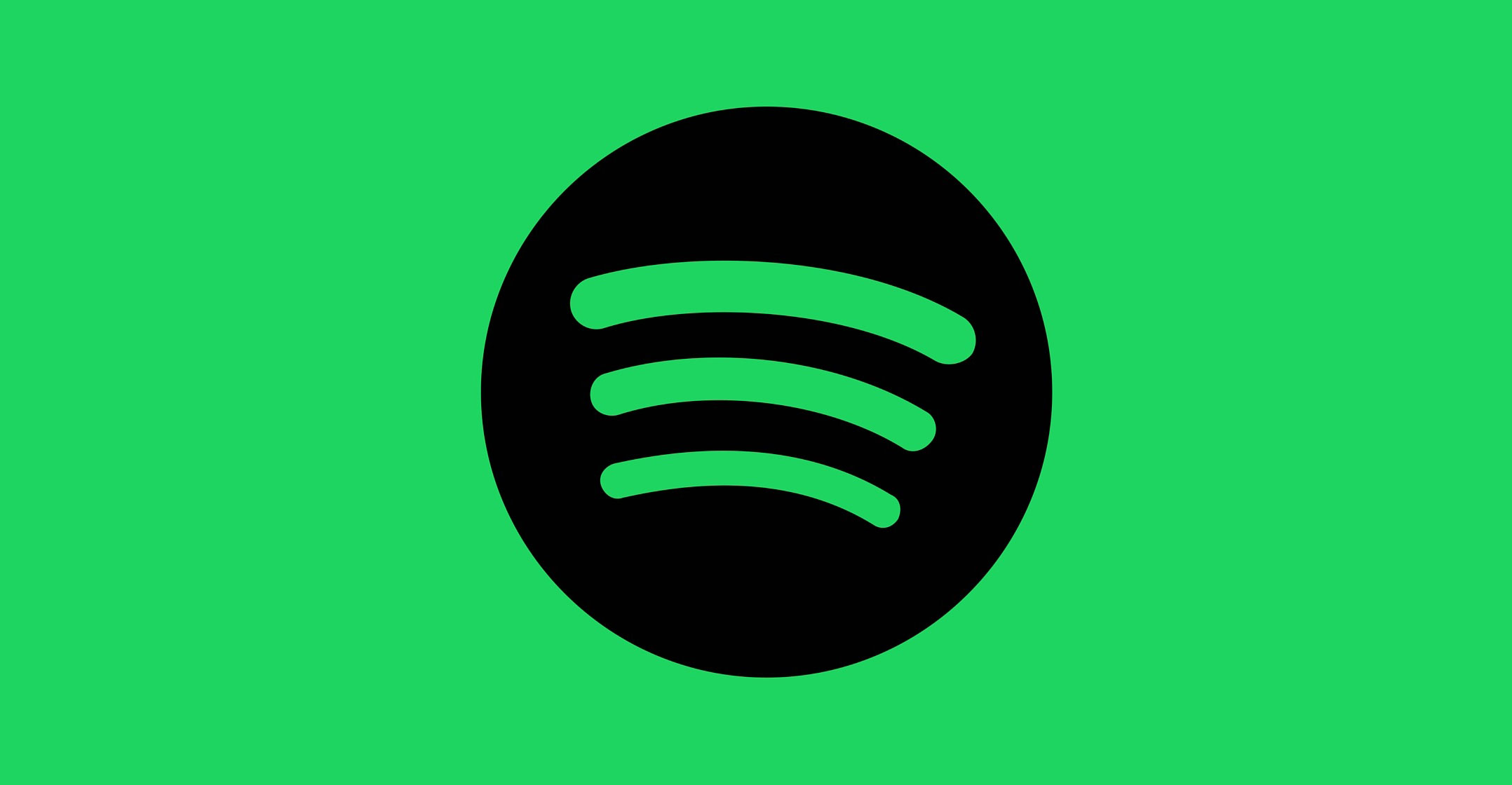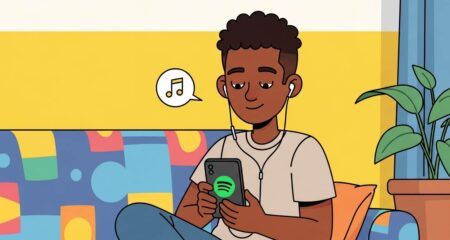 People on the prowl for a new podcast to consume often go for a stimulating option like a political debate or a true crime mystery to quicken the pulse. But when the din of the world becomes too much, listeners often need the opposite vibe: something soothing and sedating, maybe with the sound of static or falling rain. Perhaps a touch of crickets.
People on the prowl for a new podcast to consume often go for a stimulating option like a political debate or a true crime mystery to quicken the pulse. But when the din of the world becomes too much, listeners often need the opposite vibe: something soothing and sedating, maybe with the sound of static or falling rain. Perhaps a touch of crickets.
Enter — quietly, on tippy-toes — the white noise podcasters.
While the top of the podcast charts on Spotify and Apple are still dominated by garrulous, jawboning hosts, these days you can also reliably find a smattering of white noise shows appearing in the mix. Relatively new to the podcast scene, the tranquil programmes haves names like Calming White Noise, Best Noise Labs, Relaxing White Noise and Deep Sleep Sounds.
Who is behind the popular offerings is a bit of a mystery.
To date, the major podcast networks have yet to pile into the field, leaving independent creators to serve the growing market. Curiously, at time when most podcasters clamour for public attention, the white noise podcast creators remain a relatively tight-lipped group. Requests to speak to multiple shows, even those with a contact form, were declined or went unanswered. In one case, the name of a website’s owner was hidden — its host was listed, improbably, as “Earth”.
Those who did respond to interview requests say they are making good money, winning over fans and marvelling at the power of podcast distribution. Collectively, the shows represent a burgeoning and lucrative podcast genre.
Todd Moore, a Florida Keys resident, quit his cybersecurity job in 2009 to focus full-time on an app, which he named White Noise. In 2019, he launched a podcast named Tmsoft’s White Noise Sleep Sounds, using Anchor, Spotify’s free podcast hosting software. Moore says that his white noise show now gets around 50 000 listens per day — a figure that would rank in the top 25% of all podcasts, according to Marshall Williams, partner and chairman of the podcast ad agency Ad Results Media.
‘Full-time life’
Moore and his white noise team — yes, he has five employees and contractors — offer a subscription plan. But most people listen to the free, ad-supported version. Because Moore doesn’t want to interrupt the calming aura of his show, he opts to include only pre-roll ads. Anchor manages the commercial load and pays Moore US$12.25 (R190) per thousand listens, which adds up to about $612.50/day, or around $18 375 (R285 000) per month.
“I never thought writing a little app on a weekend would turn into my full-time life,” Moore said. “You just never know.”
Though Moore primarily built his business through his app, he says streaming content now provides the majority of his revenue. In addition to the podcast, he also releases his lulling sounds as music tracks, which generate income from royalties, and as videos on YouTube.
The success of Tmsoft’s White Noise Sleep Sounds appears to be tied to various factors: Moore buys ads on Spotify and places house ads around his website and app, which might prompt people to check it out. Spotify’s algorithm also can steer listeners towards such podcasts based on their search queries or previous selections. The automated process has already minted at least one accidental white-noise star.
In 2019, Brandon Reed, a Walt Disney Co employee who lives in Florida in the US, started using Anchor to host some white noise programming that he hoped would help his baby son fall asleep. Reed wasn’t aiming to build a successful podcast, he said, but soon the Spotify algorithm started pushing people to his show, 12 Hour Sound Machines (no loops or fades). That year, he created three free episodes filled with hours of static noises.
 Now, three years later, around 100 000 listeners play his show daily. What began as essentially a cozy sound blanket for his baby now regularly pops up around the world on Spotify’s charts of the most popular podcast episodes. Last year, Reed’s show made the top charts in four different countries. “I didn’t even intend for people to listen to this,” he said.
Now, three years later, around 100 000 listeners play his show daily. What began as essentially a cozy sound blanket for his baby now regularly pops up around the world on Spotify’s charts of the most popular podcast episodes. Last year, Reed’s show made the top charts in four different countries. “I didn’t even intend for people to listen to this,” he said.
At one point last year, it climbed to number 15 on the top podcast chart, putting him in the company of programmes like Dax Shepard’s Armchair Expert and the New York Times’s The Daily.
“The amount of production that goes into some of these podcasts, the production value, and then for this silly noise that plays for 12 hours to be in the top 100 feels crazy,” Reed said. “People are absolutely devouring it.”
His inadvertent hit has also made the charts on Apple’s Podcasts app and has reached over 26.6 million total listens, he said. Reed now offers a $2.99 monthly subscription, which gives paying customers access to additional sounds and the ability to request new ones. When a chiropractor needed railroad clacking for an anxious patient, Reed went out and captured it. So far, he’s made over $10 000 through subscriptions. Listeners also tip him, he says, typically about $5 to $7. Occasionally, they go higher. A person whose rescue dog sleeps to Reed’s handiwork once sent him $100 as a thank you.
White noise fans tend to be fiercely loyal, Reed says. One time, he changed the frequency of a static track and afterwards he heard from a regular listener frantically begging him to change it back because it was the only sound that would put their baby to sleep. “What’s funny is how important this has become to people.”
When a chiropractor needed railroad clacking for an anxious patient, Reed went out and captured it
Like Moore, Reed chose to host on Anchor, which Spotify acquired in 2019, because it’s free and allows for multi-hour episodes, unlike music tracks. These days, 97% of Reed’s audience and 94% of Moore’s listen on Spotify.
Though Spotify appears to have stumbled into the demand for white noise podcasts, the shows arrive at a time when all the networks are looking for new hits and are courting a wider array of creators. Last year, Apple Podcasts introduced subscriptions ahead of Spotify. Meanwhile, Amazon.com is investing in meditation and other wellness-related podcasts that will be exclusively available through Amazon Music.
Despite his early success, Reed says he has no plans to quit his day job. White noise podcasting remains the thing he does for fun. He’s now taking his family on outings to capture various ambient sounds. Reed, who is something of a white noise purist, knows he could make good money with advertisements. But he doesn’t include them because he worries the sound of commerce would disturb his audience’s restful slumber.
“It’s embarrassing to say how much money I would be making,” he said. — Ashley Carman, (c) 2022 Bloomberg LP




